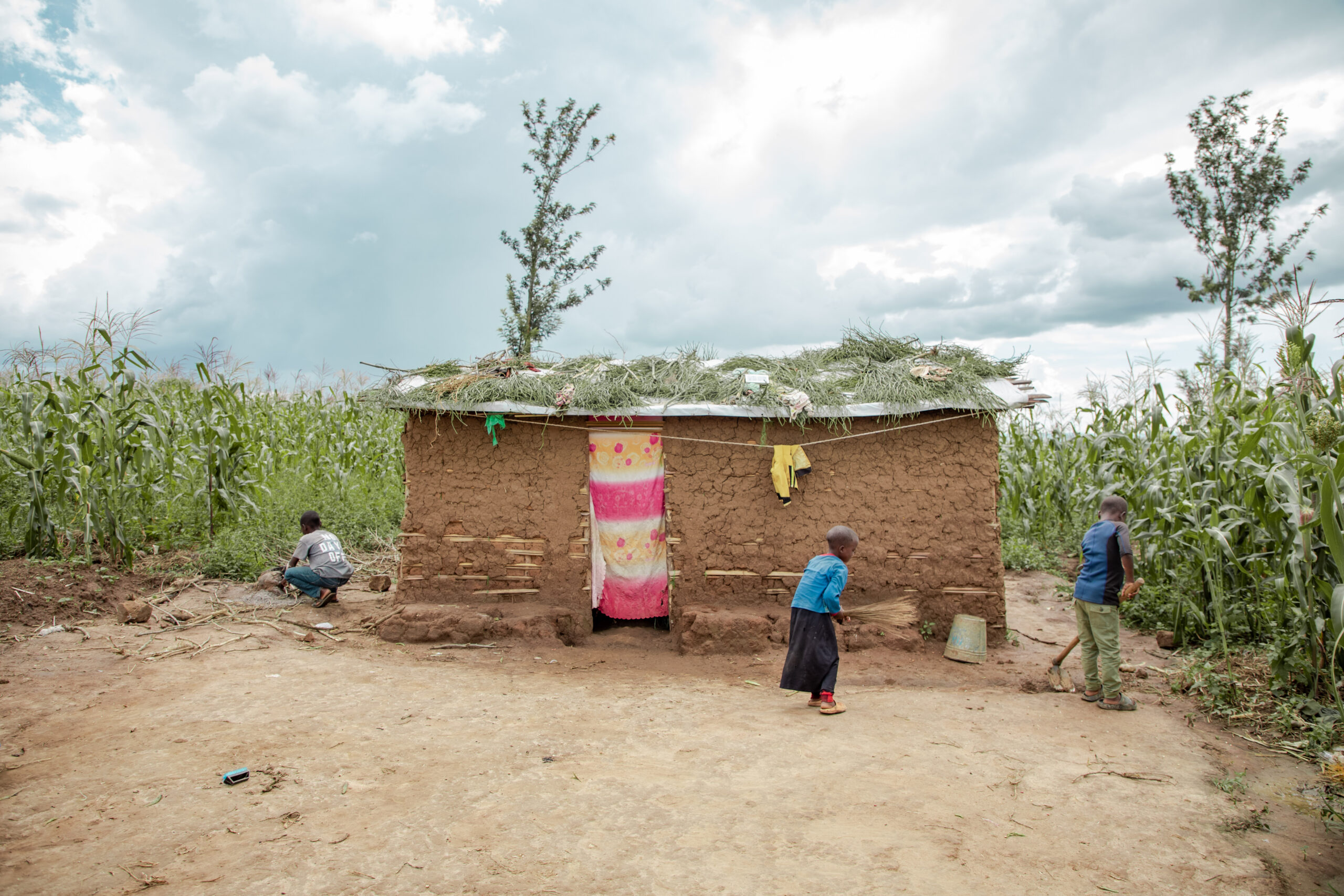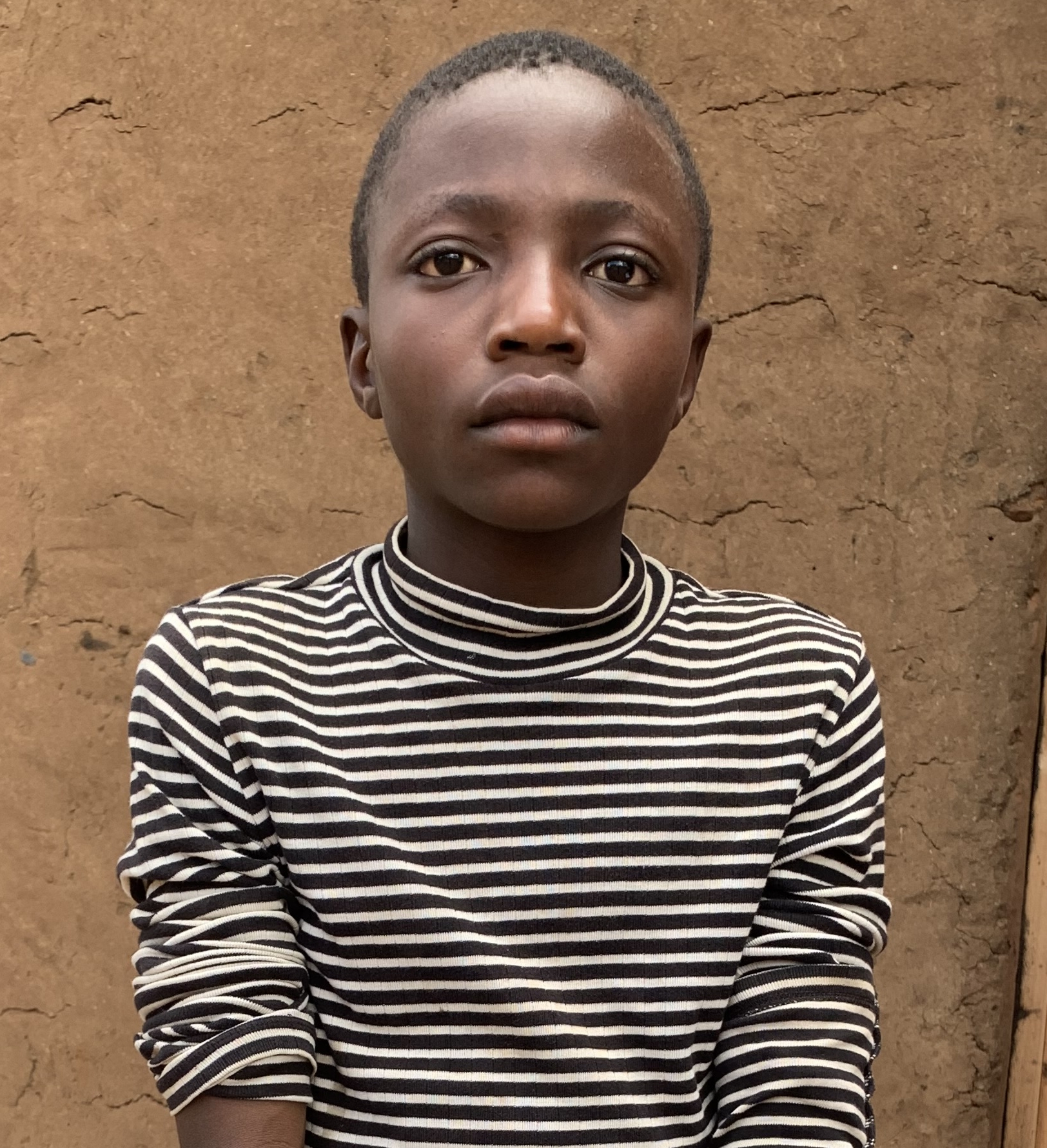Isaac’s Story

Twelve-year-old Isaac walked for many days through the forest with his parents to come to the Nakivale refugee settlement in Uganda. It was a long and tiring journey because they had to carry all they owned with them. All they had been able to save, that is, when an attack by rebels drove them from their village in the Democratic Republic of Congo.
There were many tears and sighs when they left their home. It is a great sadness to lose your best friend when you are twelve. And it is frightening not to know whether or not your friend escaped, or if he found his family when their village was attacked and those who could scattered to hide in the forest.

Life in Nakivale was very different from Isaac’s life in Congo. They had had a comfortable home in Congo where their family had lived for many generations and they knew everybody and everybody knew them. But when they came to Nakivale they had no home at first. Just a borrowed tent. And they were surrounded by strangers. Even now, after two years, their home was just a small shelter Isaac and his parents had managed to put together from mud and wood that they found discarded in a field near the small garden plot that had been assigned to their family by the refugee settlement officials.
In Congo, Isaac had gone to school with his friends, but in Nakivale at first he had to work with his parents to build their home and plant the garden. There was no money for school fees and no time to spare for studies. When they were finally settled and his father had found some part-time work, Isaac still wasn’t sure he wanted to go to a school where he didn’t know anyone. He was afraid he would be too far behind to catch up and the other children would laugh at him.
Then one day a man came and talked to Isaac’s parents about a program for children like him. A Better World 4 Kids brought together elderly people and children for story telling. Isaac thought that might be fun, so he went to see what it would be like.
The children sat in a circle and the grandparents told good stories that made Isaac laugh and also taught him useful things, like how to make new friends when you find yourself suddenly in a world that is different from everything that went before. Isaac had developed a bad habit of taking things he wanted without asking his parents first. The grandparents taught him to ask for what he needed, and when he tried that at home, his mother smiled at him and gave him what she could. And his father nodded approval, which made Isaac feel glad. He even asked his younger brother before taking his broken toy and fixing it.
After the grandparents told their stories and the children talked about the lessons they found in the stories, the children played games together. Isaac asked before picking up the ball. And soon he made friends with the boys he played football with.
He still missed his life in Congo, but the grandparents reminded him of his mother’s old uncle, and the stories reminded him of home. Nakivale was beginning to feel better.
Then a terrible thing happened. Word spread through the Nakivale community that some children had disappeared. No one knew who had taken them.
The next day a group leaving Nakivale was stopped at a police checkpoint, and the missing children were recognized and rescued. This was a happy ending, but Isaac thought that the children had been very lucky and worried that if someone kidnapped him, he might not be rescued like they were. He remembered how he had carried heavy burdens many miles to leave Congo and how afraid they had all been of the rebels and the soldiers and how maybe his best friend was dead or captured and forced to fight on one side or the other.
Isaac became timid again. The grandparents noticed that many of the children had become withdrawn and fearful. The children were encouraged to talk about their fears during the sharing time after the stories. Isaac told them he was afraid that he could be taken back to Congo any time and that he would not be able to find his way back to his parents. His new friends gathered around him to comfort him and let him know he was not alone. Even children he had not played with told him they understood how he felt. When he knew he was surrounded by friends who listened to him and cared about him, Isaac felt calmer.
Then one day someone came to talk to them from the local welfare committee to describe how the police were being extra watchful and community members were being encouraged to report any strangers they saw, and Isaac realized that he was part of the Nakivale community now. He was no longer a stranger.
And he made a decision that when the next school term began, he would ask his father to pay the fees so that he could go to school here in Nakivale where he belonged.
